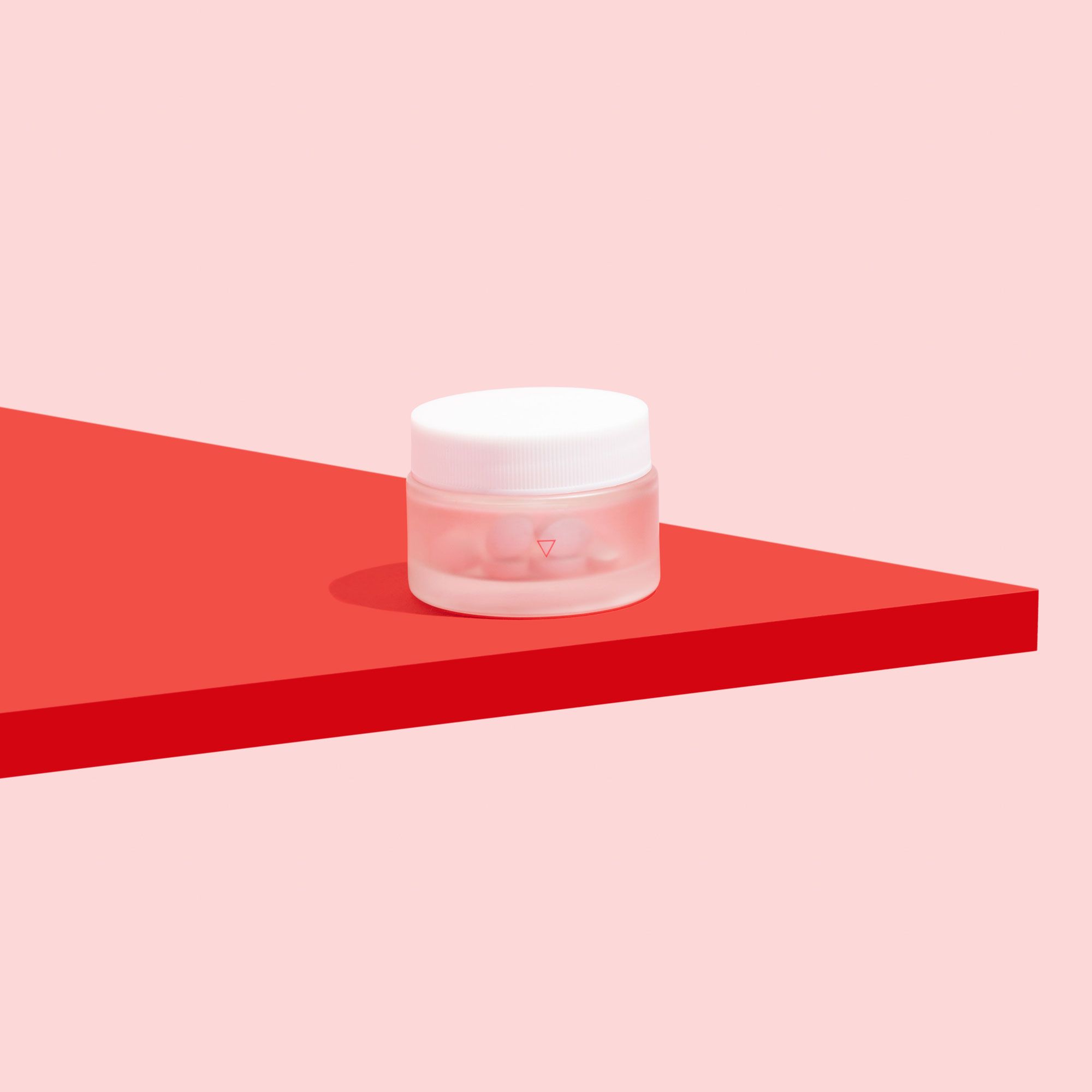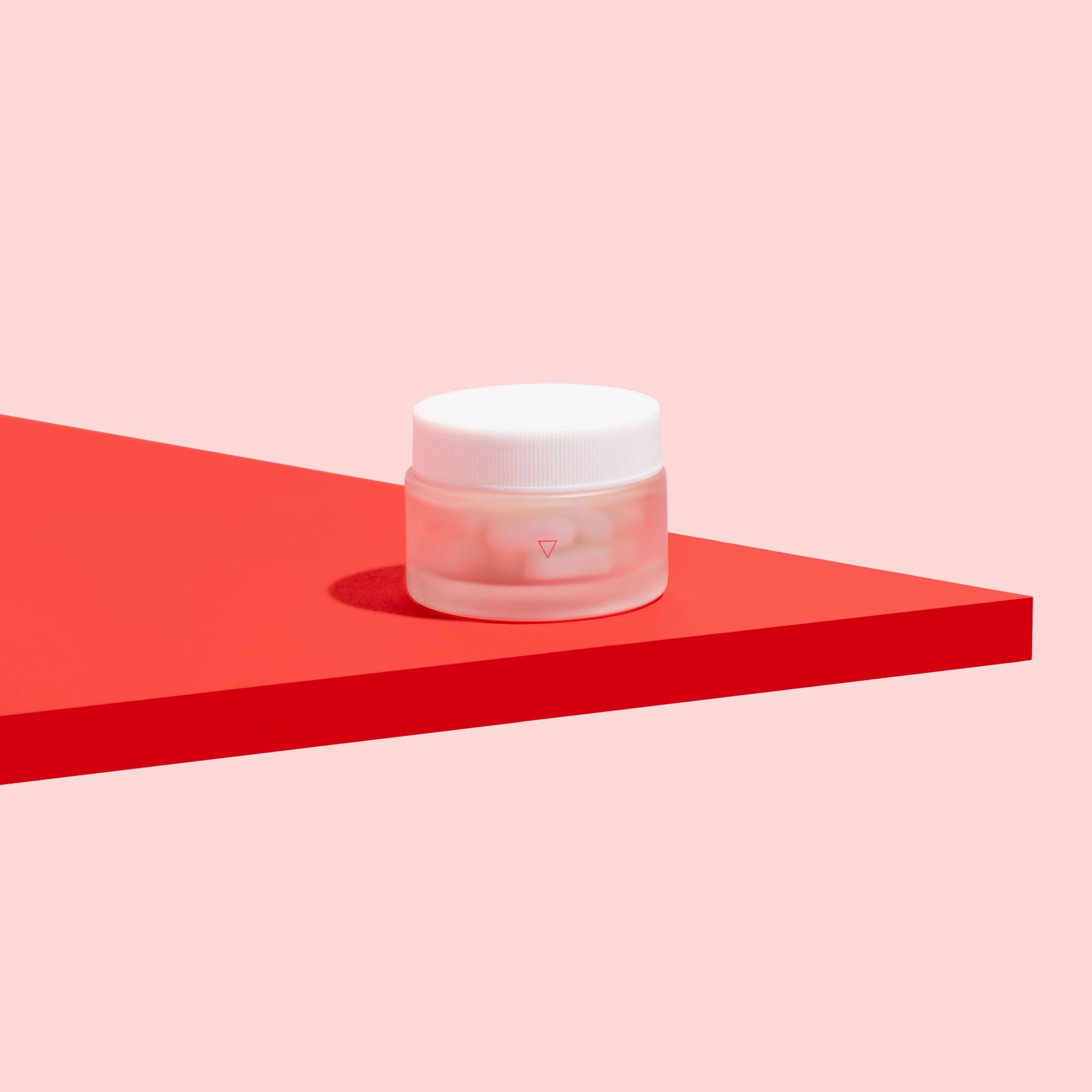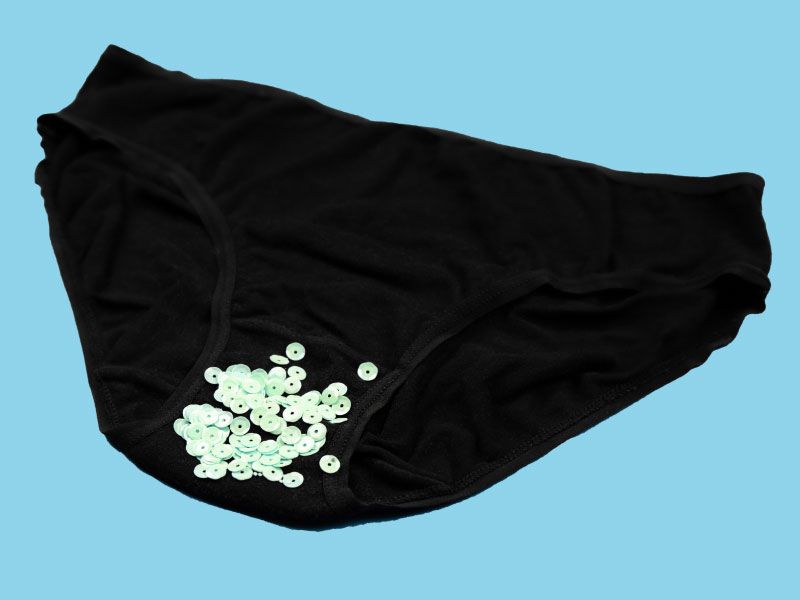
Your Guide to a Healthy Vagina
Published on June 14, 2022
Updated on April 24, 2025
Written by Kathleen Morrison
Medically Reviewed by Andrea Sleeth WHNP-BC, MSCP
Most of us didn’t get the full scoop on vaginal health growing up. Between awkward health classes and hush-hush conversations, it’s no wonder there’s still so much mystery (and misinformation) floating around.
But your vagina deserves better than myths and stigma—she deserves the facts, a little love, and a whole lot of respect.
We’re here to break it down for you with zero shame and all the honesty. Whether you're brushing up on the basics or learning something new, this guide is all about helping you feel informed, empowered, and totally in tune with your body. Keeping your vagina healthy shouldn’t be confusing or embarrassing—it should feel as natural as, well, having one.
What does a healthy vagina look like?
First things first: there’s no one-size-fits-all when it comes to vulvas. Just like faces, every one is unique—and that’s part of what makes yours amazing. What matters most is knowing what’s normal for you so you can spot when something feels a little off.
If you’ve never taken a proper peek before, grab a mirror and get familiar with your vulva (that’s the outside part—including your labia, clitoris, and vaginal opening). Labia come in all shapes, sizes, and shades—from pink to brown to deep purple to black. Every single variation is totally normal and totally healthy.
While you’re getting acquainted, keep an eye out for anything that doesn’t usually show up, like:
- Lumps or bumps
- New rashes
- Sores or spots that feel painful or itchy
You deserve to feel confident in what’s going on down there, and the more familiar you are, the easier it is to check in with yourself and your healthcare provider if something changes.
What can affect your vaginal health?
Your vagina is a powerhouse—but even powerhouses have their off days. Vaginal health can be influenced by so many things, and most of them are completely normal parts of everyday life.
Some of the biggest factors that can play a role in your health include your microbiome, your pH levels, and discharge—all of which can lead to discomfort and even infections if they’re not playing nice.
The vaginal microbiome
Your vagina has its own little ecosystem, and it’s kind of amazing. It’s home to a whole crew of bacteria (don’t freak out, they’re the good kind) that help keep everything balanced and functioning like a dream. When that balance shifts, though? That’s when things can get a little out of sync.
There are lots of everyday things that can throw off your microbiome’s groove, like:
- Your period (especially heavy ones)
- New sexual partners or multiple partners
- Sex without a barrier method
- Hormonal changes (hi, birth control or menopause)
- Douching (seriously, your vagina does not need that)
- Antibiotics (yep, they kill the good stuff too)
When your microbiome’s balance is off, you might notice things like itching, irritation, unusual discharge, or an odor that’s not your norm. Totally common, but also kind of annoying.
Vaginal pH
Okay, science moment—your vagina is naturally a little acidic, and that’s a good thing. A healthy vaginal pH usually hangs out at 4.5 or lower, which means it’s a bit on the acidic side (for reference, 7 is totally neutral, and 14 is the super basic end of the pH scale).
This gentle acidity plays a role in keeping your vaginal environment comfortable and thriving.
If you’ve ever noticed random bleachy-looking stains or even small holes in your undies, that’s probably from your vagina doing her thing. The acidity in your discharge can wear on fabric over time. (Totally normal, and kinda cool once you think about it.)
Your pH balance is mostly handled by your vaginal microbiome, and when things get off-balance—like when your pH gets more basic—you might notice some changes, like a shift in odor, taste, or even a bit of irritation. Been there? Same. BV, yeast infections, and hormone changes throughout your cycle can all mix things up.
Knowing your pH helps you tune into your body and feel more confident navigating changes.
Vaginal discharge
Let’s talk about discharge—it’s completely normal, super important, and definitely not something to feel weird about.
Vaginal discharge is basically your vagina’s built-in self-care routine. It’s made up of natural fluids, good bacteria, cervical mucus, and skin cells—all working together to keep things fresh, clean, and balanced down there.
Your discharge isn’t just normal—it’s expected. It can change in color, texture, and amount throughout your cycle. Around ovulation (usually two-ish weeks before your period), you might notice more clear, stretchy, or watery discharge. Before your period, it might get thicker or more white and creamy. All of that = your body doing exactly what it’s supposed to do.
That said, tuning into your discharge is a great way to keep tabs on your vaginal health. If you notice any big shifts—like white and clumpy or greenish-grey and fishy-smelling—it might be your body's way of letting you know something’s up. Yeast infections, BV, and some STIs can all cause changes in discharge, so don’t hesitate to check in with a medical provider if things feel off.
Vaginal infections
Why does it feel like vaginas are always doing the most?
Vaginas are warm, moist, and full of life (literally)—which means they can sometimes be a cozy little spot for harmful bacteria or yeast to throw a party you definitely didn’t RSVP to. But here’s the good news: when things get out of balance, there are easy ways to spot what’s up and treat it quickly.
Let’s get into the two most common guests that overstay their welcome.
Bacterial Vaginosis
BV is basically your vaginal microbiome saying, “Hey, something’s a little off.” It usually happens when certain bacteria (that are normally chill in small amounts) grow too much and crowd out the good guys. The result? A strong fishy smell that may come with itchiness, irritation, or just general "off" vibes.
Some things that can shake things up down there:
- New or multiple sexual partners
- Scented soaps or products near your vulva
- Douching (seriously—don’t)
Your vagina is a self-cleaning queen. All she needs is a little support, not a fancy fragrance.
Yeast Infections
If your vagina starts smelling like sourdough, or you're itching like your underwear is made of sandpaper—you might be dealing with a yeast infection. It’s super common, and it happens when yeast (from the Candida fungus that normally lives in small amounts down there) gets a little too comfy and multiplies.
You might notice:
- Thick, white, cottage cheese-y discharge
- Burning, itching, or dryness
- A slightly sweet, beer- or bread-like scent
The fix for these infections is prescription antifungal meds, but there are additional things you can do to help take extra good care of your vagina.
- Change out of damp undies or swimsuits ASAP
- Skip oral sex if your partner has thrush (oral yeast infections are a thing)
- If you're taking antibiotics, chat with your provider about yeast infection support—sometimes they wipe out the good bacteria too
Wisp treatment options are available only after consultation with a licensed medical professional. You should consult with your healthcare provider before starting a new supplement or treatment regimen. Individual results may vary.
When Sex Hurts
Sex is supposed to feel good. So when it doesn’t? That’s not something you just have to “push through” or brush off. If your vagina is saying ouch instead of yes please, it’s time to listen—and get the support you deserve.
Painful sex (and there’s a name for it: dyspareunia) affects a lot of people. Like, a lot. Studies show that between 1 in 10 and 1 in 5 women in the U.S. experience recurring pain during sex. And we’re not talking about a fleeting sting or momentary discomfort—this is pain that can impact your relationships, your mental health, your sense of self, and your ability to conceive.
There are a bunch of possible reasons sex might be painful, including:
- Vaginismus (when your vaginal muscles tighten up involuntarily)
- Vulvodynia (chronic vulvar pain that’s not caused by an infection or injury)
- Lack of lubrication (this one’s so common and so fixable)
- Postpartum changes (because bodies shift a lot after baby)
- Hormonal shifts or vaginal atrophy (especially during perimenopause or menopause)
But you don’t have to be stuck with it. There are solutions—like using the right lube, hormone therapy, pelvic floor physical therapy, or other medical options depending on what’s going on.
How to support your vaginal health
Let’s hear it for your vagina—a self-cleaning, pH-balancing, infection-fighting machine. She’s doing a lot behind the scenes to keep you comfy, balanced, and ready for whatever life (or your weekend plans) throws your way. But even the hardest workers need a little backup sometimes.
Taking care of your vaginal health doesn’t have to be complicated. In fact, it can be as simple as staying in tune with your body, supporting your natural flora, and being mindful of what’s going in, on, and around your vulva. The more you know about how your vagina functions, the easier it is to show it some love.
What to take to support vaginal health
When your vaginal microbiome is thriving, everything feels better. That’s where supplements come in. A few small additions to your routine can go a long way toward helping your vagina do it’s thing (and feel great doing it).
Here are a few helpful additions to consider for your self-care-down-there routine:
- Probiotics: These little legends support your natural flora and balance in your body. Strains that include lactobacillus can help show your vagina (and your gut!) some love.
- Boric acid: Boric acid suppositories can help balance your pH and can make a huge difference when it comes to caring for yourself.
- Hydration + nutrition: Okay, not exactly a supplement, but what you put in your body matters. Drinking water, eating nutrient-dense foods, and steering clear of overly processed stuff can help your vaginal ecosystem thrive.
- Medications (when needed): Whether it’s prescription antifungals for yeast infections or prescriptions for BV, getting the right treatment ASAP is key.
Signs your vagina might be unhealthy
Your vagina is pretty good at keeping things in check, but sometimes life can throw a curveball. Whether it’s changes in your routine, hormones, or even a new partner, it’s important to stay in tune with your body and listen to the signals your vagina is sending you. After all, when she’s happy, you’re happy.
So, how do you know when something might be off? Here are a few signs that your vagina might need some extra TLC:
Unusual odor
Your vagina has a natural scent, and that’s totally normal. But if you notice a sudden, strong, or fishy odor, that could be a sign that something’s out of balance. It’s important to pay attention—sometimes an off smell can point to conditions like BV (bacterial vaginosis) or a yeast infection.
Itching or burning
We know no one likes that uncomfortable, itchy feeling. If you’re feeling persistent itching, burning, or irritation around your vulva or inside your vagina, it’s your body saying, “Hey, something’s up here.” These sensations could be a clue that there’s an imbalance, infection, or sensitivity happening down there.
Change in discharge
Discharge is your vagina’s way of doing some housekeeping, so changes in consistency, color, or amount can be clues that something’s going on. For example, thick, cottage-cheese-like discharge could signal a yeast infection, while thin, greyish-green discharge might point to BV. Keep an eye on what’s normal for you and let your provider know if anything feels off.
Pain during sex
Sex is meant to be pleasurable, not painful. If you’re experiencing discomfort, burning, or pain during or after sex, that could be a sign that your vagina is stressed. Whether it’s due to dryness, hormonal changes, or an infection, it’s worth exploring what’s causing the discomfort.
Swelling or redness
If you notice unexpected swelling, redness, or soreness around your vulva, it’s time to pay attention. These changes can be a response to infection, irritation, or allergic reactions, and it’s always a good idea to check in with a provider if they linger.
Painful urination
If you’re feeling pain or discomfort when you pee, it might not just be because you’re dehydrated. It could be a sign of a urinary tract infection (UTI) or irritation. In either case, peeing should never hurt, and if it does, it’s worth getting checked out.
How to clean your vagina
Your vagina is not “dirty,” “smelly,” or the villain of your sexual health story. In fact, your vagina is pretty awesome and does a lot of the cleaning on its own. That’s right—your body knows how to handle this. The discharge from a healthy vagina keeps things balanced, moisturized, and working just as they should.
The truth is, the less we interfere, the better. Douching or using internal cleansers might sound like a good idea, but in reality, they mess with your natural balance and can lead to unwanted infections or irritation. A disrupted pH can cause things like bacterial vaginosis or a yeast infection—and no one wants that.
Even though your vagina has this whole cleaning thing handled, it’s still important to take care of the outside area—the vulva and labia. All you need is a splash of warm water and some gentle rubbing to keep things fresh. If you like a little extra help, you can use a wash that’s designed for sensitive skin.
Your vagina, your health, your rules
Taking care of your vaginal health doesn’t have to be complicated or stressful—it’s all about listening to your body, keeping things balanced, and getting the right support when you need it. Whether it’s keeping an eye on your discharge, choosing the right products, or staying on top of any concerns, the key is to stay informed and empowered.
Remember, you deserve to feel confident, comfortable, and in control of your health. If you ever need guidance or treatment, Wisp has your back with trusted, discreet, and easy-to-use care options.
Ready to take charge of your vaginal health? Let Wisp help you with everything from prescription treatment options to tips on keeping things in check. Start feeling your best today!
Frequently Asked Questions (FAQ):
How can a female improve her pH balance?
Skip the scented stuff, stay hydrated, wear cotton undies, and try a gentle, pH-friendly wash.
What are signs of a healthy vagina?
Mild smell, clear or white discharge, and no itching or irritation. If it feels normal for you, you’re likely good to go.
How do I reset my pH balance?
Ditch harsh products, stick to gentle cleansing, and consider probiotics or treatment if things feel off.
This blog post is for informational and educational purposes only and should not be taken as professional advice. Always consult with a qualified professional before making any decisions based on the information provided here.

Diflucan, Generic Fluconazole (Yeast Antifungals)
Prescription antifungals used to treat vaginal yeast infections
Starting at $45.00
Get Started
BV Antibiotics (Tablets or Gel)
Request topical or oral prescription antibiotics to treat bacterial vaginosis.
Starting at $15.00
Get Started

